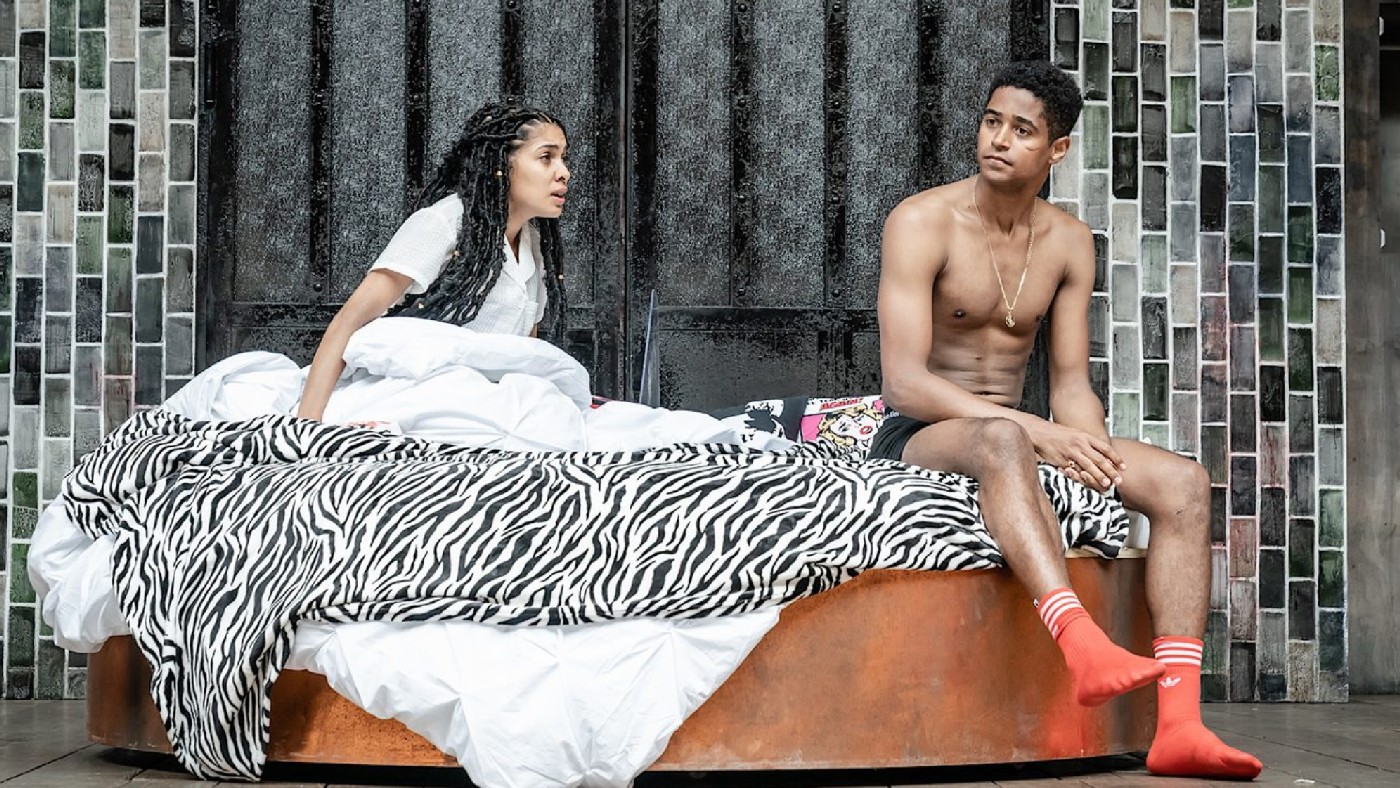Theatre in review: The Wind in the Willows, Falstaff and Romeo & Juliet
‘Enthralling’ outdoor theatre for children and staging that lifts the spirits

A free daily email with the biggest news stories of the day – and the best features from TheWeek.com
You are now subscribed
Your newsletter sign-up was successful
It’s “hard to imagine” a more “enthralling” and entertaining piece of outdoor summer theatre for children than Pitlochry Festival Theatre’s new staging of The Wind in the Willows, said Mark Brown in The National. The event boasts a “fresh, witty and lively” adaptation of the Kenneth Grahame classic by the writer Mark Powell, a “superb” cast, a rousing musical score – and a beautiful setting in the theatre’s riverside grounds.
A firm environmental message and topical themes underpin this “jolly” production, said Mark Fisher in The Guardian. When Alicia McKenzie’s Mole says she’s been hibernating, Ali Watt’s Ratty notes, “We’ve all been inside a lot.” After our own enforced hibernation, this Wind in the Willows “becomes a show about rebirth and renewal” – and a thoroughly enjoyable one, too (until 12 September).
Scottish Opera’s staging of La bohème in the car park of its Glasgow production studios was an artistic beacon in the darkness of last year’s lockdowns, said Rowena Smith in the same paper. Its successor is an equally impressive (and far more lavish) new staging of Verdi’s Falstaff by Sir David McVicar, which moves indoors at the Edinburgh International Festival next month.
The Week
Escape your echo chamber. Get the facts behind the news, plus analysis from multiple perspectives.

Sign up for The Week's Free Newsletters
From our morning news briefing to a weekly Good News Newsletter, get the best of The Week delivered directly to your inbox.
From our morning news briefing to a weekly Good News Newsletter, get the best of The Week delivered directly to your inbox.
In recent years, Falstaff has often been played as a “sitcom, a giddy reel of sight-gags and slapstick”, said Alexandra Coghlan in The Spectator. What you get with McVicar’s “grown-up” staging is less raucous but no less joyous: the “warmth of slow-spreading operatic sunshine that seeps into your bones” and lifts the spirits.
The singing is top-notch across the board. And Roland Wood’s incomparable Falstaff – “opulently sung from start to finish, thuggery pierced with sudden flashes of charm” – is “magisterial” (Glasgow until 17 July; then Edinburgh from 8-14 August).

The summer season of Shakespeare’s Globe is not exactly firing on all cylinders, said Dominic Maxwell in The Times. Its Romeo & Juliet (until 17 October) is a leaden, didactic affair that comes over “like an over-eager English teacher out to prove that Shakespeare is ‘relevant’ to modern youth”.
Baldly educational statements (about crime, poverty, teenage depression, the patriarchy and the damaging impact of the closure of youth clubs) burn away in red surtitles on a giant screen, upstaging the drama they are supposed to illuminate. Alas, the actors are also made to read them out. “Suicide is the leading cause of death among all people under 35,” intones Capulet when Romeo and Juliet die. Talk about “a buzzkill”.
A free daily email with the biggest news stories of the day – and the best features from TheWeek.com

There’s zero spark between the leads; and “despite some real talent in the cast”, most characters barely register. When, at the end, the Prince tells us “Go hence, to have more talk of these sad things,” it is “as if he’s telling us to go into discussion groups together before we are allowed to head home”.
-
 The environmental cost of GLP-1s
The environmental cost of GLP-1sThe explainer Producing the drugs is a dirty process
-
 Greenland’s capital becomes ground zero for the country’s diplomatic straits
Greenland’s capital becomes ground zero for the country’s diplomatic straitsIN THE SPOTLIGHT A flurry of new consular activity in Nuuk shows how important Greenland has become to Europeans’ anxiety about American imperialism
-
 ‘This is something that happens all too often’
‘This is something that happens all too often’Instant Opinion Opinion, comment and editorials of the day
-
 Arcadia: Tom Stoppard’s ‘masterpiece’ makes a ‘triumphant’ return
Arcadia: Tom Stoppard’s ‘masterpiece’ makes a ‘triumphant’ returnThe Week Recommends Carrie Cracknell’s revival at the Old Vic ‘grips like a thriller’
-
 My Father’s Shadow: a ‘magically nimble’ love letter to Lagos
My Father’s Shadow: a ‘magically nimble’ love letter to LagosThe Week Recommends Akinola Davies Jr’s touching and ‘tender’ tale of two brothers in 1990s Nigeria
-
 Send Help: Sam Raimi’s ‘compelling’ plane-crash survival thriller
Send Help: Sam Raimi’s ‘compelling’ plane-crash survival thrillerThe Week Recommends Rachel McAdams stars as an office worker who gets stranded on a desert island with her boss
-
 Book reviews: ‘Hated by All the Right People: Tucker Carlson and the Unraveling of the Conservative Mind’ and ‘Football’
Book reviews: ‘Hated by All the Right People: Tucker Carlson and the Unraveling of the Conservative Mind’ and ‘Football’Feature A right-wing pundit’s transformations and a closer look at one of America’s favorite sports
-
 Catherine O'Hara: The madcap actress who sparkled on ‘SCTV’ and ‘Schitt’s Creek’
Catherine O'Hara: The madcap actress who sparkled on ‘SCTV’ and ‘Schitt’s Creek’Feature O'Hara cracked up audiences for more than 50 years
-
 6 gorgeous homes in warm climes
6 gorgeous homes in warm climesFeature Featuring a Spanish Revival in Tucson and Richard Neutra-designed modernist home in Los Angeles
-
 Touring the vineyards of southern Bolivia
Touring the vineyards of southern BoliviaThe Week Recommends Strongly reminiscent of Andalusia, these vineyards cut deep into the country’s southwest
-
 Nan Goldin: The Ballad of Sexual Dependency – an ‘engrossing’ exhibition
Nan Goldin: The Ballad of Sexual Dependency – an ‘engrossing’ exhibitionThe Week Recommends All 126 images from the American photographer’s ‘influential’ photobook have come to the UK for the first time